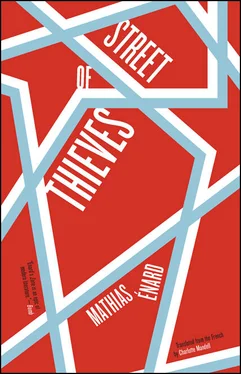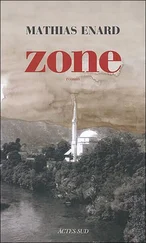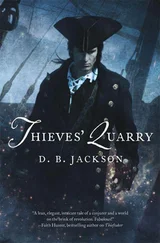Lately, the crisis and better radar at sea had obviously put a slight dent in his business, so he was mostly repatriating workers who had died entirely legally in Spain — accidents, illnesses, or old age, whatever the Grim Reaper was willing to hand him, who mowed down my compatriots along with everyone else, thank God; but he always hoped, at the end of winter, for a good cargo of illegal corpses — the waters of the Strait were dangerous in that season, the pateras were going farther east to avoid patrols and were taking more risks: they sailed when the heavy swells made radar observation difficult. My work would be simple, it would mainly involve warehousing, loading, unloading, placing the bodies in coffins, etc.; he needed a Muslim, he explained, so the remains would be treated with respect for religion — the Imam from the neighborhood mosque would come and give me a hand.
So I would be a Muslim dogsbody. Paid on the black market. Housed on site. I was replacing another young Moroccan who had left him not long before, to try his luck in Madrid.
I thought of that bastard Saadi, who hadn’t warned me about the nature of this job. Three hundred euros plus room and board, with laundry included. It wasn’t that bad.
The idea of sending real stiffs back to Morocco after having imported dead soldiers to it virtually was rather amusing, I thought. I had never seen a corpse. I wondered how I would react. I thought about Judit, I wasn’t at all sure of wanting to tell her what my new job entailed. In any case it would be all the same to her.
THEweeks with Mr. Cruz were an abyss of unhappiness. I lived in death. I stayed in a garden shed in back of the business, a cubbyhole full of tools and jugs of weed-killer, it stank of lawnmower gas; the generator for the cold-storage chamber was behind my wall and its vibrations woke me up every night. Mr. Cruz would lock me up in the enclosure when he went out at night, and would free me when he arrived in the morning — with rare exceptions he limited my movements, from fear of identity checks by the cops or social services. When I needed something — clothes, toiletries — he’d buy it for me himself. I didn’t have any visitors. After 7 PM, when Mr. Cruz got into his SUV to go home, I was alone with the coffins.
I never got used to contact with the corpses, which fortunately didn’t come in very often — you had to unload them, take them out of their plastic bags, while wearing a mask over your nose; the first time I almost fainted, it was a poor drowned guy, a young one, in a horrible state; fortunately Cruz was there — it was he who gently turned the body over on the stainless steel table, who placed the remains in the waterproof zinc box, who got out the electric screwdriver to seal the casket, all in silence. I couldn’t breathe. The special mask was suffocating, its camphor or bleach smell mingled in my throat with the mustiness of the Strait, and the cadaverous fetidness of sadness, and the decay of the forgotten carcass, and even today, sometimes, years later, the smell of cleaning products makes the stench of those poor creatures come again to the back of my throat, creatures that Cruz manipulated without blinking an eye, without trembling, respectfully, calmly.
Then the Imam would come, and we would pray in front of the remains or the coffin, depending on the state of the body, one behind the other, as is the custom; Cruz would leave us. The Imam was a Moroccan from Casablanca, a middle-aged man to whom the solemnity of the task gave the aged and well-worn appearance of serious business, without a smile, without a mark of sympathy or antipathy, sure as he was of the equality of all before God, perhaps.
Praying for unknown dead people, for the vague remains of the existences of total strangers, was sadly abstract. Some of them we weren’t even sure were Muslim; it was presumed, and maybe we were sending them to the wrong God, to a Paradise in which they’d be illegal immigrants yet again.
After praying, we would line the waterproof zinc coffins up in the cold-storage room, where they joined the other “pending” deceased. The oldest one had been there for three years, another drowned man from the Strait.
The government paid sixty euros per body and per day of storage: that was Señor Cruz’s cut.
When Mr. Cruz had received the money for repatriation or had discovered the origin of an unknown body, he would organize “a loading”; he’d put two or three macabre boxes in his van and would take the ferry in Algeciras; the customs formalities were fussy, he had to seal the mortuary crates with lead, declare the freight, etc.
The business was surrounded by tall walls surmounted by broken bottles, which encircled a little garden; Mr. Cruz’s house was a few hundred meters away — at night, I was locked up with the dead, in this suburb next to the highway, and it was sad, sad and frightening.
I also took care of the cleaning and gardening; I washed Mr. Cruz’s car and fed his dogs, two handsome, blue-eyed, polar mutts that looked like wolves of the steppes — these animals were wild and gentle, they seemed to come from another world. I wondered how they bore the crushing summers of Andalusia with so much fur. Cruz was a mystery, somber and shifty; his face was yellow, his eyes wrinkled; when no bodies arrived, he would spend all day behind his desk, whiskey in hand, listening absent-mindedly to the police radio scanner so as to be the first one on the scene in case a body was discovered; he drank nothing but Cutty Sark, hypnotized by the Internet and hundreds of videos, war reports, atrocious clips of accidents and violent deaths: this spectacle didn’t seem to excite him, on the contrary; he spent his time in a kind of lethargy, of digital apathy — only his hand on the mouse seemed alive; he was stupefied by bestiality and whiskey all day long and, when night fell, he staggered a little when he got up, he’d put on his leather jacket and leave without saying a word, bolting the door with two turns of the key. He called me his little Lakhdar, when he addressed me; he had a tiny voice that contrasted with his large size, his corpulence, his thick face: he spoke like a child and this false note made him even more frightening.
He was a poor guy, and I didn’t know if he inspired fear or pity in me; he was exploiting me, locking me up like a slave; he spread a terrible sadness, the rotten smell of a soul in solitude.
I had to get out of there; the first time he let me stroll around town one afternoon, I thought for a while of disappearing without leaving a trace, of getting into a bus headed north, or a ferry to go back to Morocco — but I had nothing, no money, no papers, he had kept my passport, which I had been idiotic enough to give him, and I would probably have been arrested and thrown in jail before being expelled if I was asked to produce my documents.
I confided in the Imam from the mosque who came to pray for our dead; I explained to him that this Mr. Cruz was pretty strange, which he did not deny, only shrugging his shoulders with an air of powerlessness. He told me he thought my predecessor had run away for this excellent reason, because Cruz was a strange man, but one who had respect for the dead and for religion. That’s all.
Seen from here, the long days on board the Ibn Battuta seemed like paradise.
I imagined climbing the wall, after all it wasn’t so hard, Cruz wouldn’t go so far as to run after me; but first I had to get back my papers and some money.
One day, Mr. Cruz left at dawn with the hearse; he returned with a load of dead bodies — seventeen, a patera had capsized off of Tarifa and the current had dotted the beaches with corpses. He was very happy with this harvest; a strange happiness, he didn’t want to seem happy to be getting fat off the backs of these poor stiffs, but I could sense, behind his mask for the occasion, from the way he stroked his dogs, and called me my little Lakhdar, that he was delighted with the resumption of business, but was ashamed at the same time.
Читать дальше












